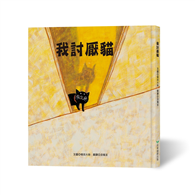A framework for improving managerial effectiveness—based on the timeless principles of Peter Drucker
Peter Drucker believed that management, at its core, is a liberal art—that it is inherently a human activity and, as such, must be informed by the disciplines that affect human character development, cooperation, performance, innovation, and change. Managers informed by philosophy, literature, law, art, psychology, and other such disciplines, according to Drucker, make the best managers.
In Drucker's Lost Art of Management, the world's foremost Drucker scholar and the first Drucker archivist investigate their subject's timeless vision to create a new, more effective management approach. Maciariello and Linkletter explain Drucker's vision for creating a society of functioning organizations—a society in which citizenship and business interests benefited one another. His management principles were at the core of this vision.
Each of the five chapters in the book integrates disciplines in the liberal arts with requirements to successfully manage organizations by addressing key issues, including:
- The effective distribution of power and authority
- The development of human beings at work, both intellectually and morally
- The creation of leaders who are dedicated to the mission of their organization and possess the skill and judgment necessary to achieve their missions
- The advancement of the practice of management through the use of the liberal arts
- The application of systematic processes for creating new wealth through innovation and change
Today, more than ever, Drucker's concepts need to be put into action. Drucker's Lost Art of Management is a clarion call for improving management practices presently in a state of acute crisis.Introduction; Chapter 1: Origins of Management as a Liberal Art in Peter Drucker's Writings; Chapter 2: Management and Liberal Arts Traditions: Bridging the Two Worlds; Chapter 3: Contributions of Management as a Liberal Art; Chapter 4: Federalism and the Distribution of Power and Authority; Chapter 5: The Human Dimension and Management as a Liberal Art; Chapter 6: Effective Leadership as a Liberal Art; Chapter 7: Social Ecology and the Practice of Management as a Liberal Art; Chapter 8: Applied Social Ecology: Innovation and Change for a Hopeful and Bearable Society; Conclusion











